This is an edited excerpt from an interview done by Martha's Vineyard Museum oral history curator Linsey Lee with Nelson Bryant of West Tisbury.
Mr. Bryant was a private first class with the 508th Parachute Infantry Regiment of the 82nd Airborne Division. He fought in three battles that included combat and parachute jumps into Normandy as part of the D-Day invasion, into Holland and in the Battle of the Bulge. After the war he returned to the Vineyard and worked with John Mayhew oyster farming and at the Woods Hole Oceanographic Institution. He then finished his studies at Dartmouth College and became the managing editor for the Daily Eagle in Claremont, N.H. Needing more money to support a growing family, he returned to the Vineyard to build docks. He became a staff writer for The New York Times where his column Outdoors appeared twice weekly for 30 years.
I was born on April 22, 1923, in Long Branch, N.J. My father worked for Poor’s Publishing Company. But during the crash and the early 1930s that went all to hell. But at that time we had started coming to the Vineyard in the summers and we moved in here in 1933, I think. I started grammar school in Needham and finished up in West Tisbury. I went through high school in Vineyard Haven, and worked my way through the Norfolk School for Boys, in Connecticut, for one year.
I was then accepted at Dartmouth. That would have been 1942. I went one summer semester, and it was interesting, but not very rewarding intellectually because all of us freshmen ate in one place, and we all got ill with a virulent disease which involved fevers and vomiting and all the rest. Most of the time I spent in the infirmary. But anyway, at the end of that, the war was going on and I said, “I can’t sit and let this go by.”
Dartmouth had a Naval Reserve Officer Program, NROTC, it was called. And I tried to get into it, but I was born blind in my right eye, so I wasn’t acceptable. So I just volunteered for the draft.
I took some tests, and I wound up in Washington, D.C., in something called the Second Signal Service Battalion, and it was a high-flying intelligence outfit, decoding and that sort of thing. But I had nothing to do with words or decoding. My job was to work with the supply sergeant and hand out clothes to all the people that were studying how to break codes.
This was Army. And it was boring. As a matter of fact it was so boring that I memorized the names of all — let’s say there were 100 men. Just for something to do. For instance, I still remember the last one. It was Frederick W. Zander, and his identification was 12125356.
Anyway, after a couple of months of that I went to my company commander and said, “I can’t stand this. I can’t go on like this. I want to enlist in the Airborne.” And he said, “Well, good luck, but go ahead. You have my blessings.”
I went into basic training in the Airborne, in Fort Benning, Ga.
I knew that I was blind in one eye, so no combat outfit was going to accept me. So I said, “What the hell can I do?” And at first there were scores of us going through taking these physical tests. I thought maybe I could get someone my size and shape and general appearance to take my card through the eye section. And then I said “Jesus, that’s a little obvious.” So what I did was — you walked in and they said, “Cover your right eye,” which is my bad eye, so I did. My other eye’s perfect. And then he said, “Cover your left eye,” and I just switched hands and covered the same eye, so I was 20-20 in both eyes.
And to pursue that thought just a little — it didn’t catch up with me until I’d qualified as a paratrooper; I’d made my five jumps. After you’d made five jumps you could tuck your pants in your boots. You’d polish your boots up and tuck your pants in, and you were it. In training, you were just ordinary scrubby old soldiers running around. We had these shiny boots, but they were covered up with your pants hanging over them. But once you could tuck them up and fold them over and polish them up — then you were there. It’s a very primitive, childish thing. And it worked.
Then we went into rifle training, and of course I could shoot very well because of all the hunting I had done on the Vineyard. I can’t shoot from the right side because this eye is blind, so I had to learn as a kid to shoot from the left side. So the first day on the range I raised my M-1 — which was the standard American rifle in World War II — I raised it to my left shoulder. The sergeant who was teaching us said, “Get that gun off your left shoulder, son, and put it on the right shoulder!” And I said, “Oh, boy.” I hadn’t thought of this one. And I said, “Sarge, can I talk to you a minute off to one side?” And I said, “Sarge, look. I’ve gotten this far. I’m blind as a bat in my right eye. I can’t see anything. I have to shoot left-handed.” I said, “It’s up to you.” And he said, “Well, if you want it that much, I’m not going to report you.” So I got into the Airborne.
We jumped from quite high up in training, from 1,000 feet. In combat, we tried to jump from, oh, 500 feet. The idea being the higher up you are, the longer it takes you to come down, the more you’re spread out, and you get dispersed. As you’re coming down, if there’s a wind you try to twist yourself around so you’re headed in the direction you were being blown. Then you wouldn’t hit and go over backwards, at least you’d go over frontwards.
What you did was, you were seated in the plane on both sides, a row of seats on each side. And at that time there was a jump master, and he would say, “Stand up and hook up.” And your main parachute was on your back. You had a reserve parachute on the front of you, in case the main one failed. And you had a heavy webbed strap hooked to the one on the back. You would stand up and there was a cable running the length of the plane. You’d stand up and hook the strap from your chute into the cable, and then go over to the door, and then he’d say “Let’s go,” and out we’d go. You folded your arms in front of you. And you started counting, “One one-thousand, two one-thousand, three one-thousand . . .” If it didn’t open at three one-thousand, about three seconds, then you were supposed to pull the reserve. Mine always opened.
Once in a while there was something called a Mae West. Why we called it that I don’t know. They were silk parachutes and there was static electricity, and every once in awhile you’d get what was called a Mae West or a streamer, and the chute wouldn’t open. It would just stay straight above you. And that’s when you were supposed to pull the reserve chute. And I never saw this but when I was in training there, the last batch of guys of that day came in and they were all shook. I said, “What’s the matter?” And they said, “Jesus Christ,” they said, “the last plane came over . . . ” I think it was about 24 guys jumping out of that plane. They jumped from 1,000 feet, so it was quite far up. And right in the middle of this bunch of guys, with all the chutes popping open, came someone who got a Mae West. And he didn’t pull his reserve and he started screaming. They said he screamed all the way to the ground. And he just hit in a cloud of dust and that was it. And that night there were quite a few would-be paratroopers who decided they didn’t want to be. You could back out until you made your five jumps. They’d just ship you out in disgrace, but after that you went to jail.
I found my first jump unpleasant. I was scared. But I had wanted to do something that was difficult. I didn’t want to hand out socks and shoes. I didn’t want to be a cook in a kitchen. I wanted to be a frontline soldier.
I have a healthy respect for danger. I’m very leery of things, and think a lot about them. No, it was — my country was at war. I detested Hitler, what was going on all over the world, and I decided that I ought to do my part. And so I tried to pick the hardest thing I could find.
We were at Fort Benning for a couple of months I think. And there was some time spent at Camp McCall in North Carolina. And then all of a sudden we went overseas to Port Stewart, Ireland, and the next thing I heard, we were going to Nottingham, England, to join the 508th Parachute Infantry, which is a regiment of the 82nd Airborne.
In Nottingham we did more training jumps. Just got ready. I think we got there in early March. And Normandy was that June.
When we were in Nottingham, just before Normandy, Ted Morgan came by to visit me. Ted was a year or two ahead of me in high school — in Edgartown, I was in Vineyard Haven. And he’d already been in the Salerno, Italy jump. And he just wanted to talk to me and tell me what it was going to be like.
We’re getting close to D-Day now. A couple of days away. You can tell. These big C47s, these transport planes, were out on the airstrip. And all of a sudden one day on the sides of the planes appeared big white crosses. I guess that was to help our own fighters identify them. It was clear that something was going on.
Before our first jump, a colonel — I can’t remember which one it was — lectured us. The night before D-Day he got up and he said — you’ve got to imagine this huge, vast hall filled with maybe, I don’t know, 500 men, maybe 1,000 — and he said: “Men, one thing you’ve got to realize is, chances are you aren’t going to be dropped where you’re supposed to be dropped. You’re going to be miles off. This usually happens. But don’t worry. Because you have one overriding mission. It’s to kill Germans.” And then he said, “Now, get this in your heads. Repeat it after me. Kill Germans.”
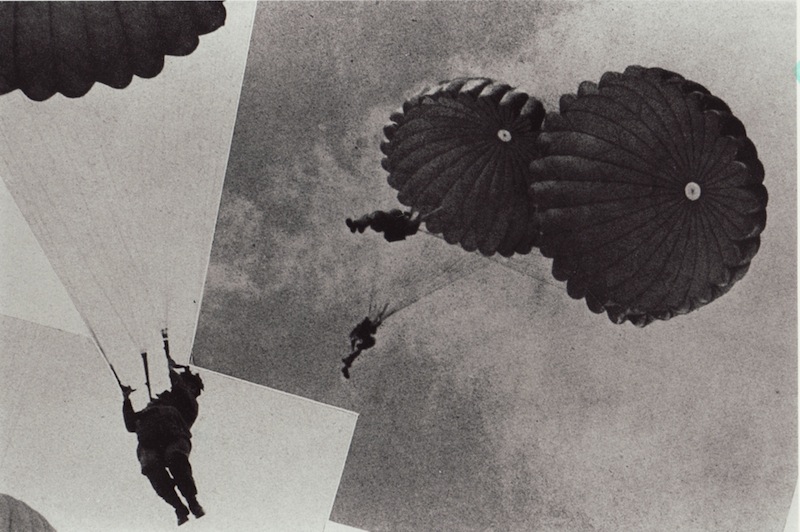
And I couldn’t do it. But the whole aerodrome was shuddering with “Kill Germans, Kill Germans.” And he said, “And if you have to do it with cold steel, do it that way, too. Any way you can. But kill, kill, kill.”
So I got into the plane, and we headed from Nottingham, across the English Channel. We jumped the night before D-Day.
It was a moonlit night, and I remember looking down at the English Channel. A little bit of anti-aircraft fire hit our plane, but didn’t hurt it. The officer who was in charge of my plane said, “We’re getting close. Stand up and hook up.” We stood up and hooked up. And then he said, “Okay, go.” So I remember I stepped out and the ride down in less than a minute. I looked down, and I could see tracer bullets streaming up at me. And they seemed to be coming up slowly and beautifully like fireworks, but then when they went by you could hear them snapping and cracking and I said, “Oh, Jesus!”
Then I looked down again and there was a huge dairy barn under me, a big one. The roof must have been 50 feet off the ground. I said, “If I land on that and my chute collapses I’ll fall and break every bone in my body.” You could grab your lines and slide away a little bit, to get away from things. So I slid away from the barn and then I looked down, and I was coming down in an apple orchard, which is pretty bad too. So I crossed my legs. I hit the first branch and it broke and others broke. I landed standing up. It was just beautiful.
You go through all this training and you don’t have much on you except a parachute. When we jumped into Normandy, we had — I think I had about 75 pounds of gear on me. Hand grenades, ammunition, a rifle . . . you couldn’t roll or tumble or do anything else.
Anyway, I’m on the ground, and I got out of my chute. Of course it’s night, which is a double problem, because we’re right in the middle of the enemy. Now at night it’s pretty damned difficult to tell who’s friend and who’s enemy. So we had little crickets — like you give kids — little metal crickets. And so if you spotted someone you’re supposed to go, “Click-click, Click-click.”
Well, after I hit the ground I got my rifle sorted out and I dropped the cricket. And of course I can’t spend time with a little flashlight looking for the cricket . . . But we had a back-up. If you lost your cricket and you saw someone you couldn’t identify, you said, “flash,” and he responded with “thunder” and you responded with “lightning.” The first guy I came across was my company commander, who was hanging from a tree. So I got my knife out and I cut him down. Then he said, “Get out in front.” So my job was to scout. I was out in front, just moving toward where we were going and gathering up our men on the way.
I turned the corner of a hedgerow, and there was this big guy right on the other side. He was over here, and my gun is pointing over here. I was dead if he wanted to kill me. And I couldn’t remember to say “flash.” I said, “Don’t shoot, don’t shoot you crazy son of a bitch.” He said, “Okay, okay.” It happened to be an American.
It was a whole division, thousands of men, scattered over more than a 20-mile radius. We knew roughly where we were, but not completely. We knew the plane was going to get us within three or four miles of the drop zone. And we had dropped supplies and plasma and stuff in chutes. A lot of it was dropped in the marsh on the river by mistake. And that’s the way it went that night.
The war in Germany ended on May 8, so I think I was in Frankfurt then. Or it could have been Sissone, France. But either way, when I heard that the war had ended . . . well, I marched down to company headquarters where the captain knew me. I said, “Captain — I can’t stand this occupation [expletive deleted]. I want to volunteer for service in Japan.” And he said, “Nelson, get your ass back to your barracks and get a good book of poetry and read it.” In retrospect, I think I thanked him for that.
Sometimes I’m haunted by that goddamned war. Night after night after night. I had a recurring dream which I haven’t had for two or three years now; I see tracer bullets at night and I’m on the ground and they’re coming at me. And they’re going across the field. And I feel like fingers are picking at me. And then — you get out of that. In my case, it can go from forgetting it completely, to being enveloped by it. It comes and it goes.


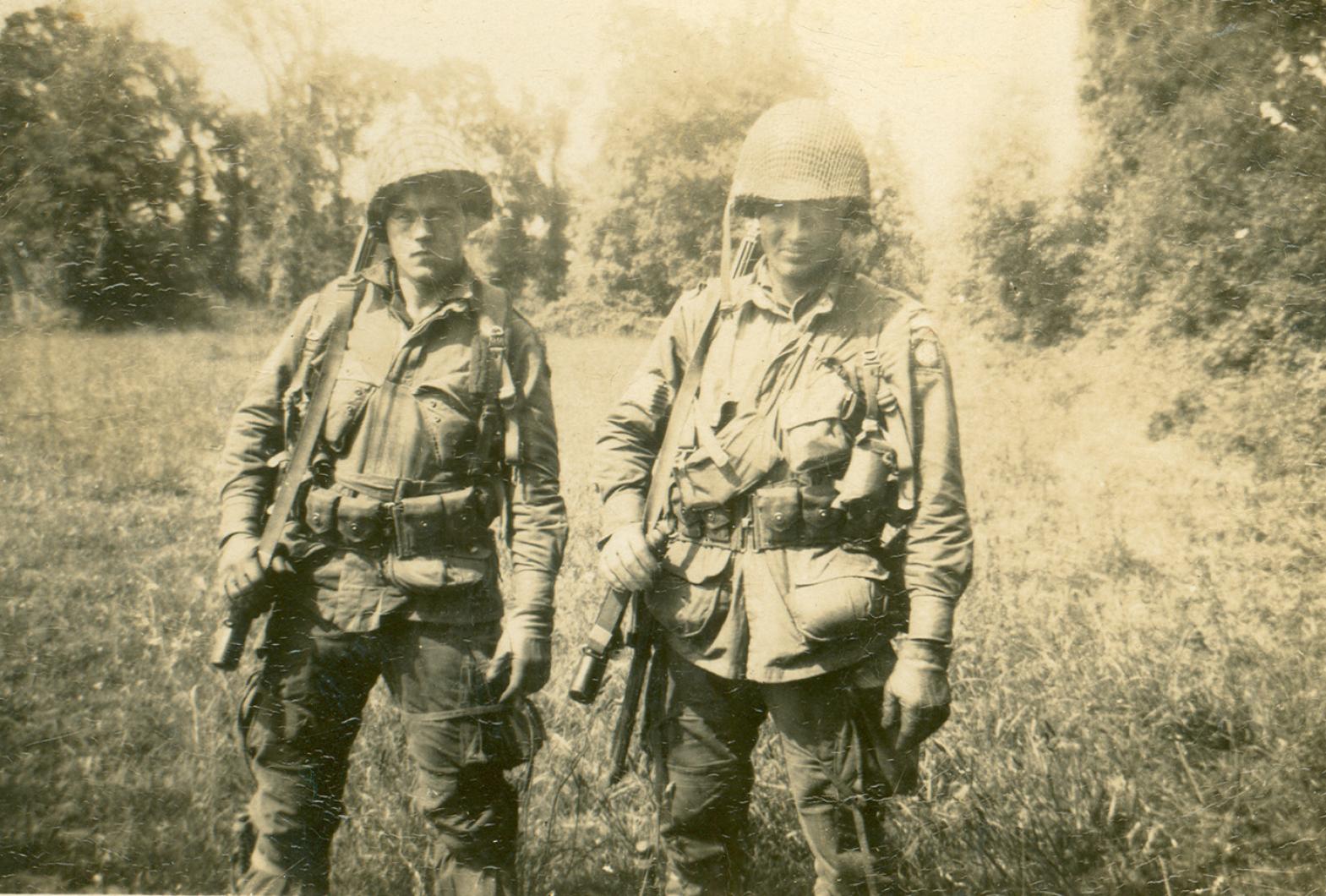
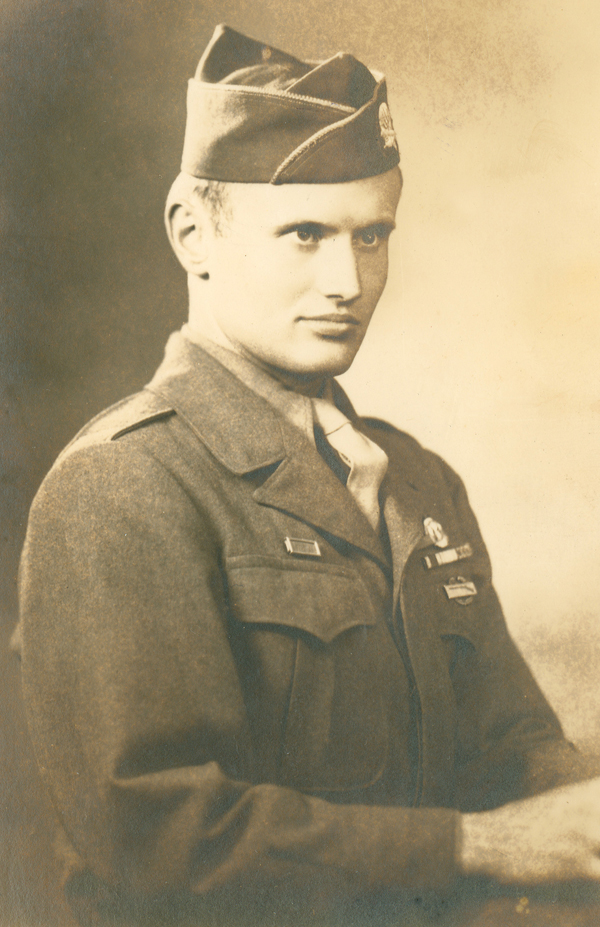
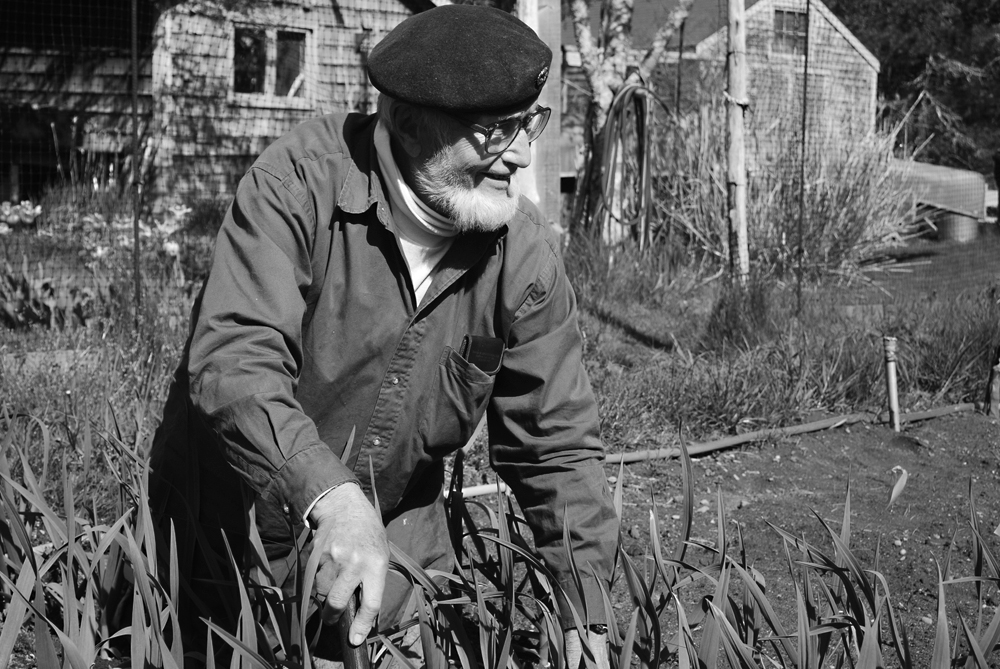
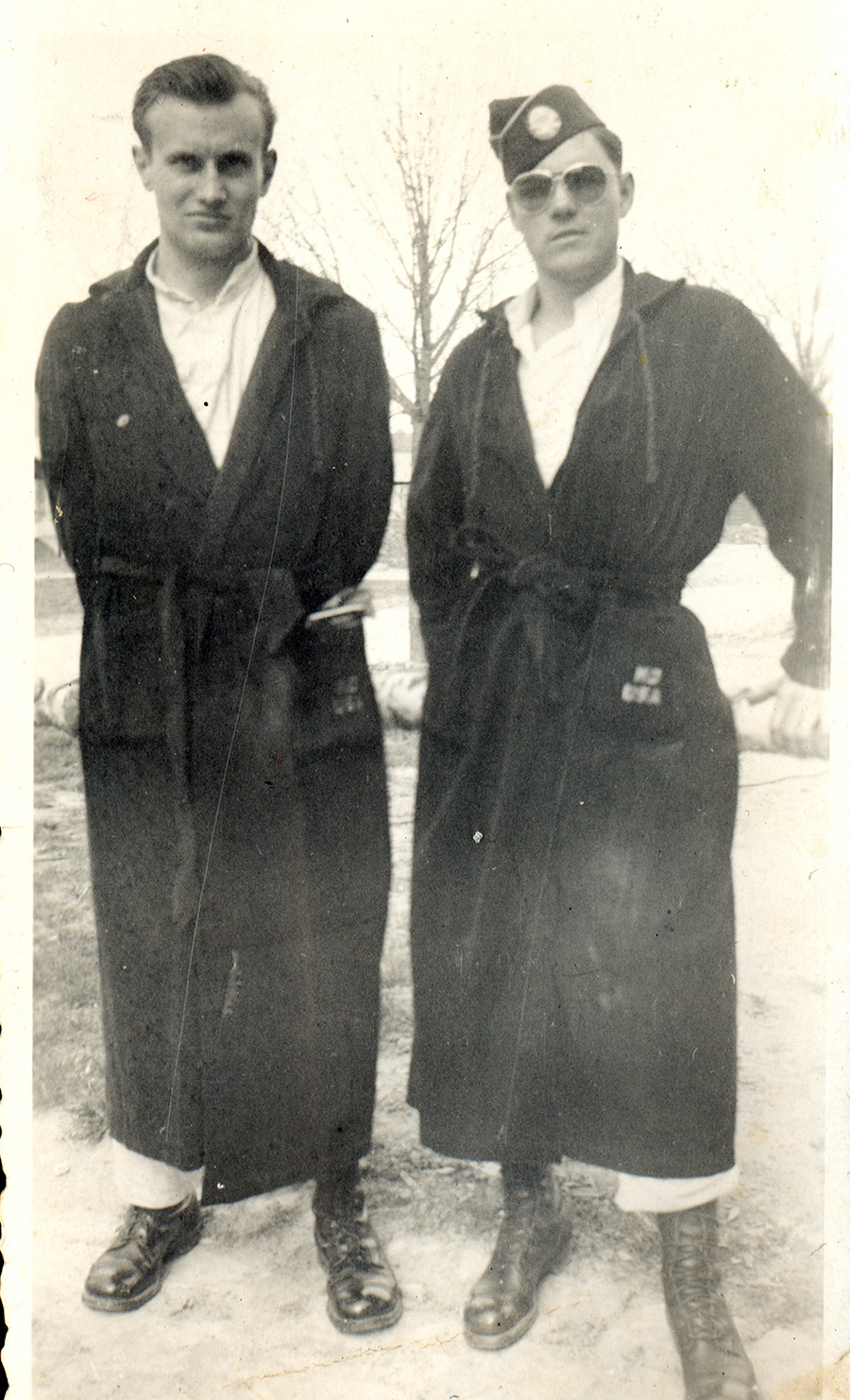


Comments (1)
Comments
Comment policy »